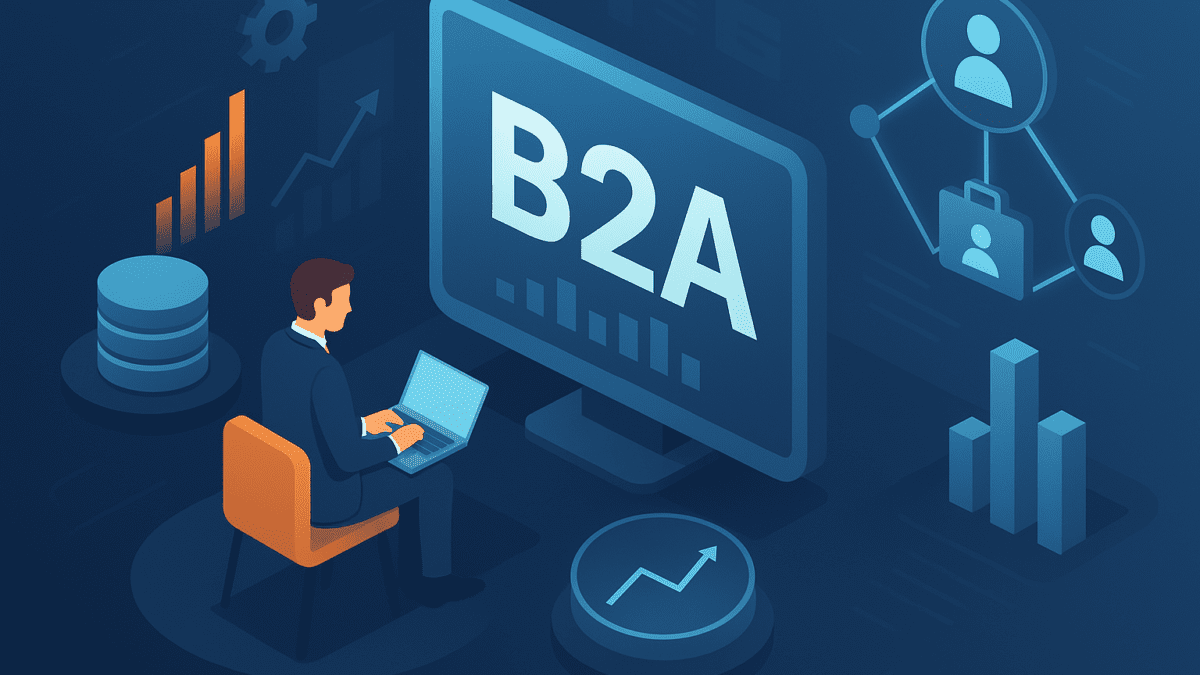Business-to-Agent (B2A) Optimization: The Future of Business Growth in 2025
Introduction: From B2B and B2C to B2A
For decades, companies have talked about B2B (Business-to-Business) and B2C (Business-to-Consumer) strategies. But in 2025, a new paradigm is emerging—Business-to-Agent (B2A) optimization.
As AI agents, chatbots, and virtual assistants become decision-makers in purchasing, support, and operations, businesses must rethink how they design experiences. B2A optimization means not just marketing to humans, but also optimizing your content, processes, and systems for AI-driven intermediaries.
What is Business-to-Agent (B2A) Optimization?
B2A Optimization refers to the practice of structuring your business processes, digital assets, and communications so that AI agents (such as customer service bots, generative AI search engines, or procurement bots) can understand, recommend, and act on them.
For example:
- A SaaS company optimizing its documentation so AI assistants can recommend it to end users.
- A retailer ensuring its catalog is machine-readable so shopping bots (Amazon’s Rufus, Google’s AI Search) can surface products.
- A B2B vendor structuring pricing and compliance data so procurement AI agents can make faster buying decisions.
Why B2A Optimization Matters in 2025
1. AI Agents Are Gatekeepers
Gartner predicts that by 2026, 30% of all B2B purchase decisions will involve an AI agent. If your business isn’t optimized for machine readability, you risk being invisible.
2. The Rise of Generative Search
Search is no longer just about Google rankings. AI-driven engines like ChatGPT, Perplexity, and Google Gemini SGE answer questions directly. B2A optimization ensures your brand gets cited and recommended by these agents.
3. Faster Decisions
Agents process complex data faster than humans, cutting down sales cycles. Businesses optimized for agents will win more deals simply by being easier for machines to interpret.
4. Cost & Efficiency Gains
By preparing systems for B2A, businesses reduce back-and-forth queries, improve automation, and streamline workflows across sales, support, and procurement.
Key Pillars of B2A Optimization
1. Machine-Readable Content
- Use structured data (schema markup) for products, pricing, reviews.
- Create clear FAQs and Q&A content for AI models to parse easily.
- Ensure compliance documents are digitally formatted and accessible.
2. AI-Friendly Marketing
- Shift from keyword SEO to Generative Engine Optimization (GEO).
- Build knowledge graphs around your brand, products, and industries.
- Publish authoritative research that AI models will reference.
3. Agent-to-Agent Integrations
- Build APIs that allow AI agents to fetch real-time data (inventory, pricing, delivery times).
- Example: A logistics company providing APIs that let AI-powered procurement bots compare rates instantly.
4. Transparency & Trust Signals
- Agents evaluate credibility before recommending brands.
- Show certifications, customer reviews, and trust badges in formats bots can read.
5. Conversational AI Readiness
- Train your support bots and website chat to handle AI-driven interactions.
- Ensure compatibility with platforms like Microsoft Copilot, Alexa for Business, and Google Bard integrations.
Examples of B2A in Action
- E-commerce: Amazon’s Rufus AI recommends products based on structured seller data. Sellers not optimized for Rufus risk losing visibility.
- SaaS: Procurement bots evaluate SaaS vendors by scanning pricing pages and security compliance documents.
- Healthcare: MedTech procurement systems use AI to select vendors with the best compliance and device data.
Benefits of B2A Optimization
- Increased Visibility: Brands show up in AI-driven recommendations.
- Shorter Sales Cycles: Agents process information instantly.
- Higher Conversion Rates: Agents prioritize accurate, transparent data.
- Stronger Competitive Moat: Early adopters of B2A gain an advantage over lagging competitors.
Challenges in B2A Optimization
- Lack of standards for AI agent interoperability.
- Balancing human vs. agent-first messaging.
- Ensuring data privacy, compliance, and ethical AI usage.
Future of B2A: Where It’s Heading
- Standardized Machine Protocols: Just as SEO evolved with Google, AI engines will standardize how brands present information.
- Autonomous Purchasing: In the near future, agents will finalize deals with minimal human input.
- Agent Ecosystems: Businesses may deploy their own AI agents to negotiate, recommend, and interact with customer agents.
Conclusion: The Next Growth Playbook
Business-to-Agent optimization is not just a buzzword—it’s the next evolution of digital marketing and sales.
Startups and enterprises that master B2A now will secure visibility, trust, and revenue in an AI-driven marketplace. Those who wait will be left behind in the noise.
In short: yesterday was about selling to people, today is about optimizing for their agents.
You May Also Like: The Future of B2B Lead Gen: Are Whitepapers Becoming the New Sales Deck?





